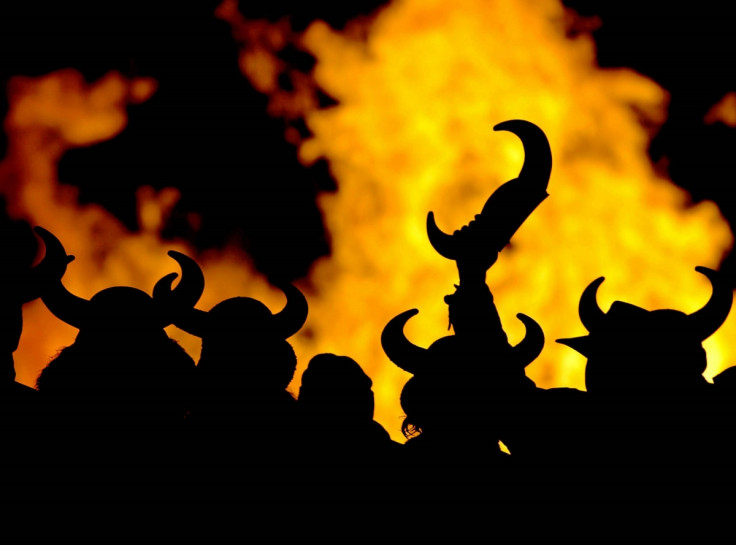Vikings Used Twilight Compass to Navigate North Atlantic at Night

Vikings used a special "twilight board" to navigate the North Atlantic at night, researchers have discovered.
According to a study published in the journal Proceedings of the Royal Society A, Vikings created a compass that allowed them to navigate their way across the ocean.
Researchers at the Eötvös Loránd University in Hungary said that it had previously been thought Vikings crossed the North Atlantic by sailing along chosen latitudes using Sun compasses.
However, an artefact discovered in Uunartoq in Greenland has now shown this was not the case.
Vikings regularly crossed the ocean to lands including Greenland, Baffin Island and Newfoundland. The object discovered in Uunartoq is from the 11th century and is a dial. After analysing it, the team discovered it had a greater role in navigation than previously believed.
"We describe here a previously unconceived method of navigation based on the Uunartoq artefact functioning as a 'twilight board', which is a combination of a horizon board and a Sun compass optimized for use when the Sun is close to the horizon.
"[It was] not the best, maybe, but it would have been a really big help."
study co-author Balázs Bernáth
"We deduced an appropriate solar navigation procedure using a twilight board, a shadow-stick and birefringent crystals, which bring together earlier suggested methods in harmony and provide a true skylight compass function.
"This could have allowed Vikings to navigate around the clock, to use the artefact dial as a Sun compass during long parts of the day and to use skylight polarization patterns in the twilight period."
After testing the twilight compass in the field, the researchers found it could be used to navigate with an error of around ±4°.
According to LiveScience, the Uunartoq artefact was originally discovered in 1948 and was initially thought to be a decorative object. It is estimated to have been about seven centimetres in diameter.
"When the sun is low above the horizon, even the shadow of a small item can fall off the board, and such situations are frequent in the northern seas," study co-author Balázs Bernáth told the website.
Speaking about the compass' accuracy, he said: "[It was] not the best, maybe, but it would have been a really big help."
© Copyright IBTimes 2025. All rights reserved.






















